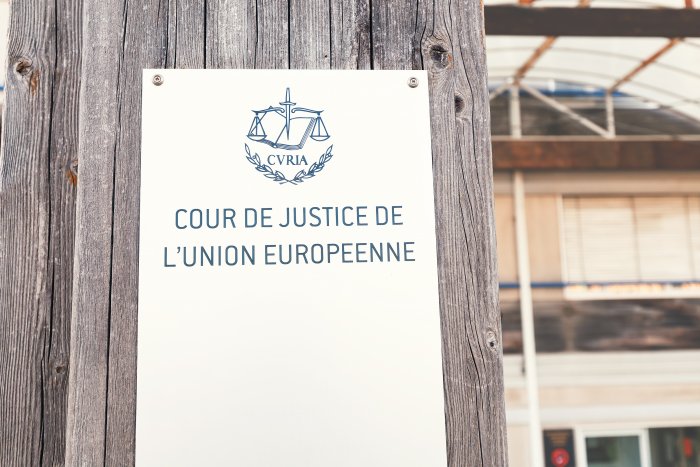South Korea Looking to Next Generation Investments in Hungary
Park Chul-Min
With diplomatic ties established in 1989, investments by the Republic of Korea (RoK) in the Hungarian economy grew to EUR 3.1 billion by 2019. Some 32 major South Korean companies have made investments in Hungary over the past six years, according to Minister of Foreign Affairs and Trade, Péter Szijjártó, generating a more than 20% increase in bilateral trade turnover in 2020 and ranking the country as one of most significant foreign investors in Hungary. South Korean Ambassador Park Chul-Min sat down with the Budapest Business Journal to discuss the relationship.
BBJ: The Republic of Korea reported 1.6% economic growth for Q1 2021. What is the ‘recipe’ of your success?
Park Chul-Min: In general, every Korean government, regardless of its political stance, has always put great emphasis on economic growth and development. This year, for instance, our government is targeting 4% GDP growth. Until now, Korea has achieved seamless economic growth except for only three occasions. First, during the oil crisis in 1980 (-0.99%), then in 1998 (-5.1%), and in 2020 (-1%) because of COVID-19. Korea has ranked as the world’s most innovative country in the Bloomberg Innovation Index for five years in a row. We also rank in the global top five for the R&D index and Economic Complex index, respectively.
BBJ: How does South Korea balance innovation and tradition?
PC-M: Our society successfully combines tradition and modernity as Korea is based on oriental and Eastern philosophies stressing the importance of harmony and balance. We are also heavily rooted in Confucianism, which stresses the significance of authority and faith. Modern Korean families do their utmost to send their children to higher education institutions and, in return, these children stay very loyal to their parents. A sense of fair competition and creativity is also a powerful locomotive for the sound development of our society, especially from the young generation.
BBJ: What makes the Republic of Korea a cultural superpower?
PC-M: In Korea, we share a special common emotion which we call heung, meaning “joy,” “excitement,” and “entertainment.” Every Korean person has a unique heung, and it is their source of creativity, openness, and adaptivity. Cultural diversification in Korea started around 1990, and it gave birth to many cultural phenomena such as K-drama, K-pop, and Hallyu (the Korean Wave). One of the best examples of our cultural export is Korean movies. Over the recent years, several new films have been released and received big awards, for instance, “Parasites,” a black comedy thriller, and “Minari,” a new movie. I am sure you have heard a lot about BTS, the Bangtan Boys, a seven-member South Korean boys’ band. They currently have four top hits on the Billboard Global 200 chart, more than any other band before. South Korea’s annual export of cultural products exceeded USD 11 bln last year, and the number of active Hallyu fans reached 100 million. All this has a great boost on tourism to Korea and a very positive impact on consumer goods export.
BBJ: Why was Hungary the first country South Korea established diplomatic ties with from the old Eastern bloc in 1989?
PC-M: Right after the collapse of the communist regime in Hungary, our administration rolled out its new diplomatic policy, the so-called Northern Policy, to reach out globally and diversify our diplomatic relations. First and utmost, the Hungarian reforms were in line with our foreign policy. And soon after Hungary, other countries like Bulgaria, Russia, and China also moved to establish diplomatic relations with us. The establishment of diplomatic ties with Hungary played a catalytic role in this process.
BBJ: The economic relationship of the two countries is characterized by solid development. What are the main fields of cooperation?
PC-M: The first Korean companies investing in Hungary were Samsung, Hanon Systems, and Hankook Tire. Samsung Electronics opened its first unit in Hungary in 1989, followed by Hanon Systems in 1990, and Hankook Tire in 2005. In cooperation with local authorities, they plan to expand further by re-investment in high value-added activities such as advanced manufacturing or engineering.
The second-generation Korean companies in Hungary are mainly greenfield investments covering the EV batteries sector, in line with the EU’s green, digital, and net-zero policies. At the same time, Korea is looking for a new investment chapter in Hungary in the medical and pharmaceutical fields. The frontrunners are Samyang Biopharm and Celltrion. We are also planning to set up global supply chains and new R&D centers in Hungary, and we also plan to maximize our potentials in ESG investments.
Bilateral trade is also on the right track as the trade turnover increased by more than 20% last year, reaching USD 3.6 bln. EV battery manufacturing firm, SK Innovation, is to open its third EUR 2.1 bln plant in Iváncsa (22 km south of Budapest), and in the future, this will be followed by Samsung SDI with the first stage of an additional investment of EUR 700 mln in Hungary. The capacity of the existing SK Innovation plant is 17.5 GWh, while the new plant is expected to generate some 30 GWh, increasing the company’s total to 50 GWh. Cumulative investment from South Korea was EUR 3.1 bln according to the statistics of the National Bank of Hungary, but based on figures by Korean companies, it is at least two times more, around EUR 6 bln.
BBJ: What is the primary motivating factor for Korean companies to invest in Hungary?
PC-M: Hungary is an attractive place for business and an investment-friendly environment. Due to its geographical position, it can serve as an excellent gateway to the EU, and it is also a logistic hub. Its main advantages are its high-quality workforce, relatively reasonable prices, and a strong industrial structure. So far, South Korea has received active support from the Hungarian government in the form of considerable state and EU subsidies. Corporate taxes are low, bureaucratic barriers are fewer, and procedures have become more simplified.
BBJ: Are there any cultural links or similarities between Hungary and South Korea?
PC-M: Oh, definitely, quite a few. Let’s mention the great Korean composer, Ahn Eak-tai, who composed our national anthem. He studied music at Zoltán Kodály’s institute, and I think this is a very special link. But there are similarities too: both nations have a strong respect for seniors, we are both warm-hearted people, and we both consider the community’s interest first. We both like spicy food, write our family name first, follow the same order when writing the date, and use the pentatonic scale in music. At this point, I’d like to mention that the Korean Cultural Center, which opened in 2012, now has a new director and, marking the KCC’s 10th anniversary, we are to have various joint programs in partnership with the Opera House and the Liszt Academy. I think Hungarian people are also doing a great job in keeping up traditions. Our cultural relations are very strong, but I intend to deepen these ties even further. As a Korean saying goes: “If you want to go faster, you will go alone, but if you want to go far, you had better go together.”
This article was first published in the Budapest Business Journal print issue of July 30, 2021.
SUPPORT THE BUDAPEST BUSINESS JOURNAL
Producing journalism that is worthy of the name is a costly business. For 27 years, the publishers, editors and reporters of the Budapest Business Journal have striven to bring you business news that works, information that you can trust, that is factual, accurate and presented without fear or favor.
Newspaper organizations across the globe have struggled to find a business model that allows them to continue to excel, without compromising their ability to perform. Most recently, some have experimented with the idea of involving their most important stakeholders, their readers.
We would like to offer that same opportunity to our readers. We would like to invite you to help us deliver the quality business journalism you require. Hit our Support the BBJ button and you can choose the how much and how often you send us your contributions.









